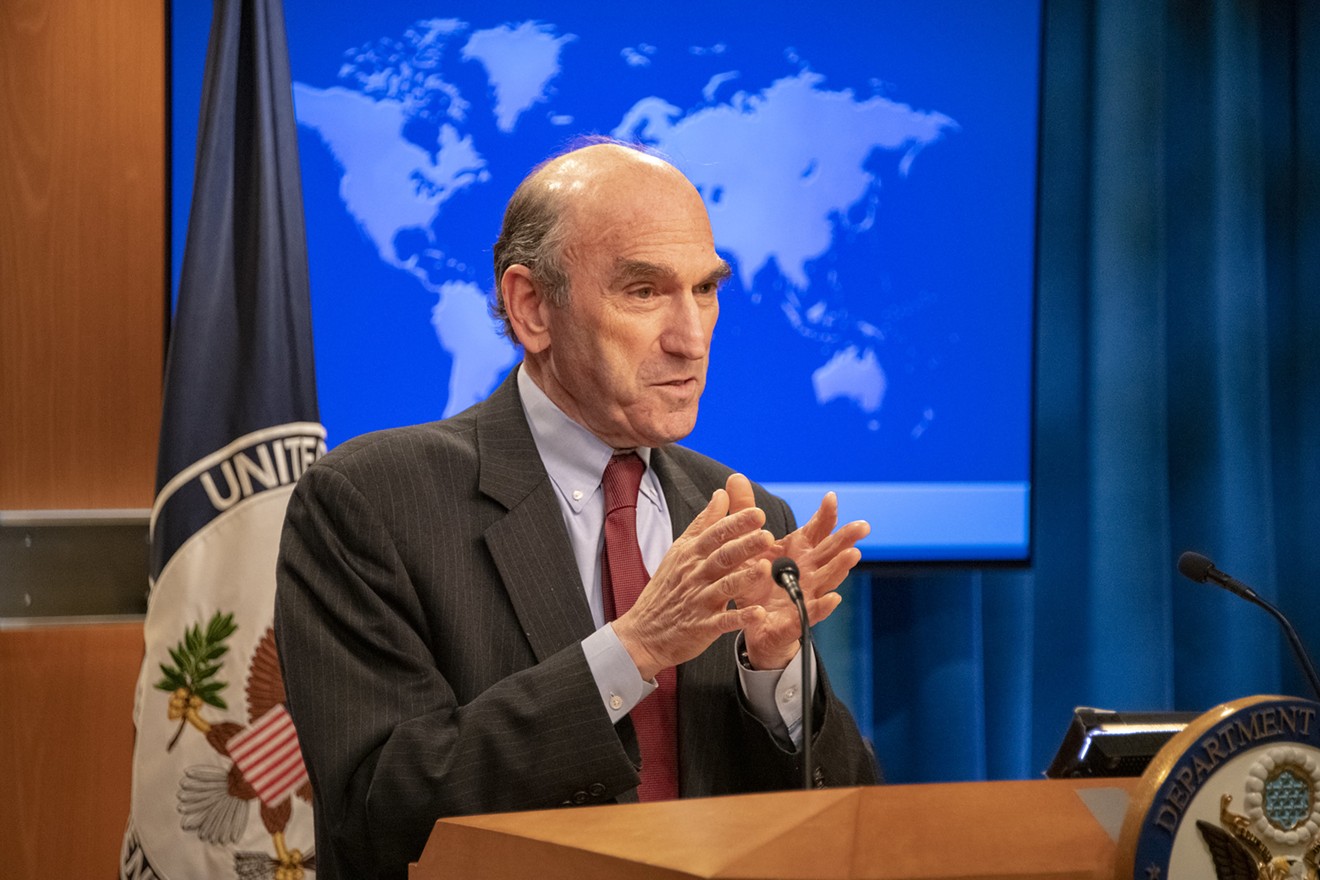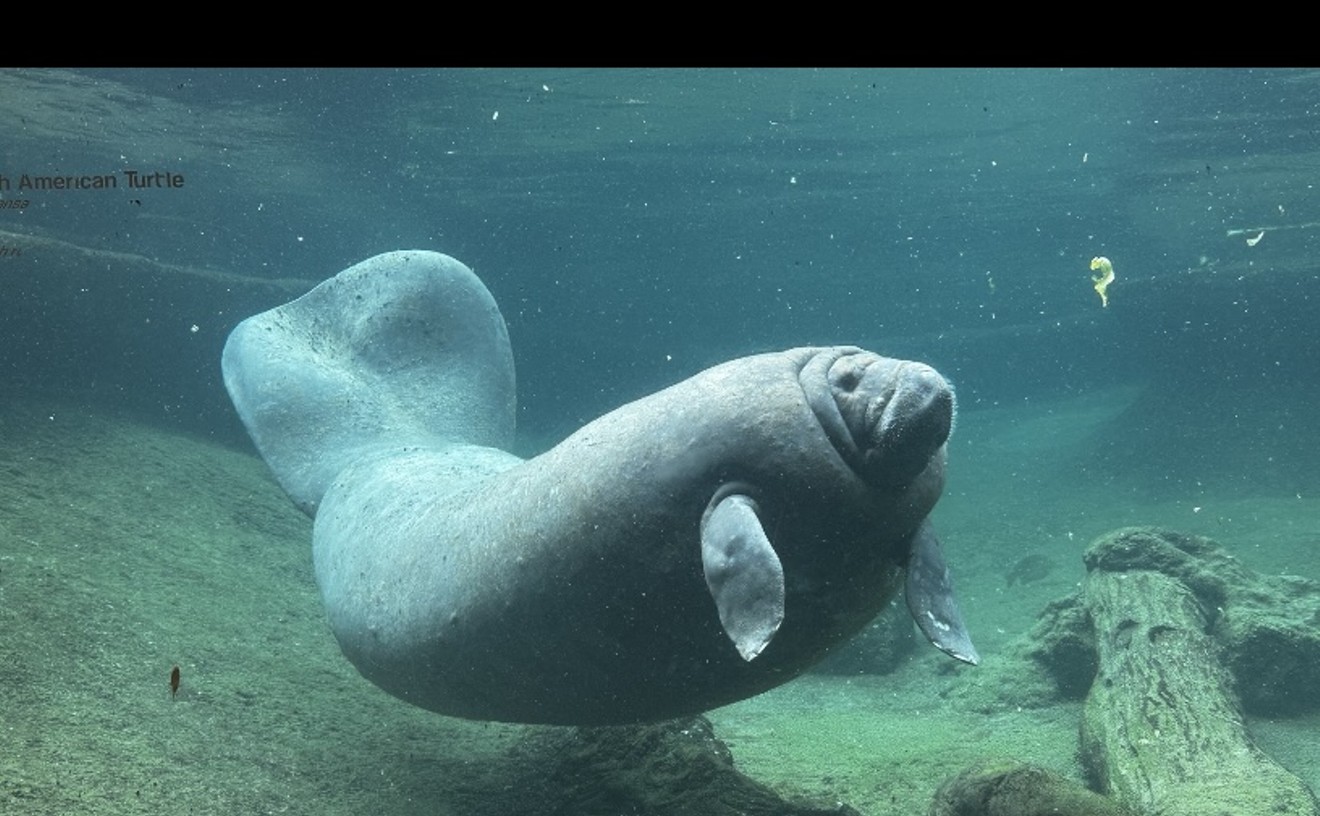The doublespeak on Venezuela is most apparent during discussions about granting temporary deportation protections and work authorizations for Venezuelans in the United States, which does not require congressional approval. Time and time again, Trump and his officials have publicly flirted with the notion of designating those Venezuelans for temporary protected status (TPS), only to stop short of taking action.
That back-and-forth has gone on for months. But this past Monday, during a Spanish-language interview with Voz de America, U.S. Special Representative for Venezuela Elliott Abrams finally gave up the game.
"I don't think this administration or the next administration would grant TPS so long as courts are saying that it's perpetual," says Abrams, who has reportedly been one of the more vocal advocates in Trump administration for giving TPS to Venezuelans. "This administration has explained that the problem is the 'temporary' part of TPS... No administration is going to grant TPS because it's eternal, because we don't have the right to decide after one year or five years that the conditions [in the country requiring TPS] have changed."
The Abrams interview happened on the eve of yesterday's vote in the House of Representatives on a bipartisan bill on the matter. The measure, which ultimately failed to pass, would have allowed Venezuelans already in the States to reside and work legally for 18 months without fear of deportation. House Democrats fast-tracked the bill for a vote before Congress goes home for its summer recess this Friday. But doing so required regular voting rules to be suspended, which in turn required that the bill garner support from two-thirds of lawmakers instead of a simple majority.
Democrats couldn't gather the roughly 55 Republican votes they needed. Despite pleas from Miami Rep. Mario Diaz-Balart, one of the bill's sponsors, more than 150 Republicans voted against the measure. Arguments from House conservatives resembled that of hardliners in the Trump administration — namely, that any TPS designation would end up renewed down the road, as they have in the past under the Obama and Bush administrations.
The Abrams interview and the House vote were a one-two gut punch to Venezuelans in Miami who had held out hope the Trump administration might make good on its rhetoric of support for Venezuela. Jose Colina, who leads Veppex (an acronym for Politically Persecuted Venezuelans in Exile, in Spanish), appeared on the Miami-based political show Factores de Poder to respond to the Trump administration's excuses.
"It's an argument that doesn't make sense. Just because courts haven't allowed this administration to remove temporary protections in the past doesn't mean Venezuelans don't need those temporary protections right now," Colina said. "OK, no TPS. So what are you going to do with Venezuelans without status in the U.S.? Return them to a dictatorship?"
So is Abrams right to say judicial activism has made eliminating TPS designations impossible? Not exactly. Courts aren't challenging the administration's right to end TPS for various countries. Rather, it's the way the Trump administration went about it that's under review. Last year, a federal judge in California put a hold on Trump's move to cancel TPS for four countries on the basis that the decision was rushed and did not abide by existing legal guidelines. The decision, which was appealed by the government, means the administration will likely have to go through the process again after litigation is over and do things by the book.Hoy se sufrió un revés, pero no debemos rendirnos. Todavia se puede presentar nuevamente el proyecto de TPS para los venezolanos Estados unidos. Faltaron 14 votos. Debemos trabajar hasta conseguirlos! pic.twitter.com/SIqeYzereH
— Jose Antonio Colina (@JoseColinaP) July 24, 2019
Dating back to the administration of George H.W. Bush, when TPS was created by Congress, TPS extensions have been a largely uncontroversial matter. Past administrations took the position that the original cause for granting the status — be it a natural disaster, famine, or military conflict — had to be weighed alongside continued perilous conditions on the ground. In other words, if it wasn't safe to send TPS recipients back to their home countries, or if their home countries weren't in a position to accept such a sudden influx, the status should be extended. The Trump administration has bucked the trend, seeking to eliminate protections for more than 300,000 foreign nationals from at least seven countries.
Colina took to Twitter after the failed House vote on the TPS bill. He had a hopeful message. "We're not going to be demoralized," he wrote. "We need to keep working and applying pressure on lawmakers far and wide in the United States, especially Republicans."












